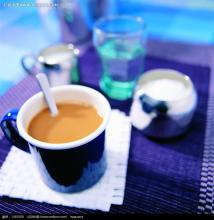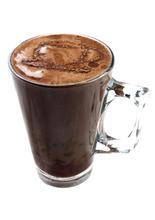Strong texture of Tanzania Kilimanjaro Coffee Flavor description Variety Grinding degree taste introduction
Tanzania's eastern coastal areas and inland parts of the lowlands belong to the savanna climate, the western inland plateau belongs to the tropical mountain climate, most of the average temperature of 21-25℃. More than 20 islands of Zanzibar have tropical marine climate, hot and humid all year round, with annual average temperature of 26℃. Tanzania is rich in mineral resources. By 2014, the main minerals discovered include gold, diamond, iron, nickel, phosphate, coal and various gemstones, ranking fifth in Africa in total. Tanzania's natural gas reserves are also very large. According to Tanzania's official data, Tanzania has proven natural gas reserves of 44 trillion cubic feet and is expected to have total reserves of at least 200 trillion cubic feet.
The beans are of exceptional quality and are grown in the Moshi region near Mount Kilimanjaro. The mountainous terrain between 3,000 and 6,000 feet high is the most suitable area for coffee cultivation. Fertile volcanic ash gives the coffee its thick texture and soft acidity. It exudes a delicate fragrance, and contains wine and fruit aromas, aftertaste is endless. Kilimanjaro coffee, always feel a soft and mellow earthy taste at the corner of the mouth, coffee gourmets often use words such as "wild" or "wild" to describe it Kilimanjaro coffee (Kilikmanjaro Coffee) produced in Africa's highest mountain in northeastern Tanzania Mount Kilimanjaro (Mount Kilimanjaro). Its coffee quality is excellent, aroma rich, sour prominent, suitable for the deployment of comprehensive coffee. Kilimanjaro coffee is an important lifeline of Tanzania's economy. About 17% of foreign exchange is created by coffee. The main production place is concentrated around Mount Kilimanjaro near Arusha in the northeast, which is Kilimanjaro volcano, the highest peak in Africa with perennial snow. Kilimanjaro Coffee is one of the top representatives of Tanzania AA coffee beans. It is bred by volcanic ash. It is a bean seed obtained by nature. The coffee has a unique cocoa sub-fruit fragrance and a strong alcohol degree. Kilimanjaro Coffee is produced in Mount Kilimanjaro, the highest mountain in Africa in northeastern Tanzania. Its coffee quality is excellent, aroma rich, sour prominent, suitable for the deployment of comprehensive coffee. Kilimanjaro coffee is an important lifeline of Tanzania's economy. About 17% of foreign exchange is created by coffee. The main production place is concentrated around Mount Kilimanjaro near Arusha in the northeast, which is Kilimanjaro volcano, the highest peak in Africa with perennial snow. Kilimanjaro coffee is one of the top representatives of AA coffee beans in Tanzania. It is bred by volcanic ash and achieved by nature. The coffee has unique cacao fruit fragrance and strong glycol degree. Tanzania's main coffee producing area is located at the foot of Mount Kilimanjaro. This place has rich volcanic soil. Some coffee trees planted here have been more than 100 years old. The earliest coffee was first introduced by Christians from Kenya to plant coffee. Coffee trees must be carefully cared for, weeded and fertilized. And also must cut off the old branches in order to grow new branches to maintain the quality of coffee beans, coffee bean processing plant equipment is quite perfect; coffee beans are an important cash crop in Tanzania, the local government attaches great importance to this industry green beans: green beans are unroasted beans, which contain fat 11.5%; moisture 11.5%; crude fiber 28.6%; minerals 4.0%; tannin 6.2%; caffeine 1.3%; essence 17.0%; sugar 8.1%; Protein is 11.8%.
Roasted beans: Roasted beans containing 13.0% fat; 1.5% caffeine; 29.5% crude fiber; 2.6% moisture; 5.0% minerals; 4.2% tannins; 29.4% extract; 2.0% sugar; 12.8% protein

Important Notice :
前街咖啡 FrontStreet Coffee has moved to new addredd:
FrontStreet Coffee Address: 315,Donghua East Road,GuangZhou
Tel:020 38364473
- Prev

Description of fragrant Guatemalan Coffee Flavor introduction to the taste characteristics of varieties in producing areas
Guatemalan coffee has a strong aroma, even if you don't drink it, just smelling it is already a pleasure. Antigua coffee has a rich and velvety mellow, rich and lively aroma, and fine sour taste. When the attractive fragrance lingers on the tip of your tongue, there is an indescribable mystery. You may feel dull at the first sip, but as the coffee slows down
- Next

Pure and soft Dominica Santo Domingo Coffee Flavor description Variety Grinding method
In the early 18th century, coffee was introduced to Domiga from Martinique, and fine coffee was produced in the north represented by Hibao and in the south, including Okayabani Santo Domingo. Among them, the coffee produced by Santo Domingo and Barney, which is almost synonymous with domiga coffee, is a world-famous high-quality coffee. Santo Domingo coffee, which is characterized by freshness and elegance,
Related
- Detailed explanation of Jadeite planting Land in Panamanian Jadeite Manor introduction to the grading system of Jadeite competitive bidding, Red bid, Green bid and Rose Summer
- Story of Coffee planting in Brenka region of Costa Rica Stonehenge Manor anaerobic heavy honey treatment of flavor mouth
- What's on the barrel of Blue Mountain Coffee beans?
- Can American coffee also pull flowers? How to use hot American style to pull out a good-looking pattern?
- Can you make a cold extract with coffee beans? What is the right proportion for cold-extracted coffee formula?
- Indonesian PWN Gold Mandrine Coffee Origin Features Flavor How to Chong? Mandolin coffee is American.
- A brief introduction to the flavor characteristics of Brazilian yellow bourbon coffee beans
- What is the effect of different water quality on the flavor of cold-extracted coffee? What kind of water is best for brewing coffee?
- Why do you think of Rose Summer whenever you mention Panamanian coffee?
- Introduction to the characteristics of authentic blue mountain coffee bean producing areas? What is the CIB Coffee Authority in Jamaica?

